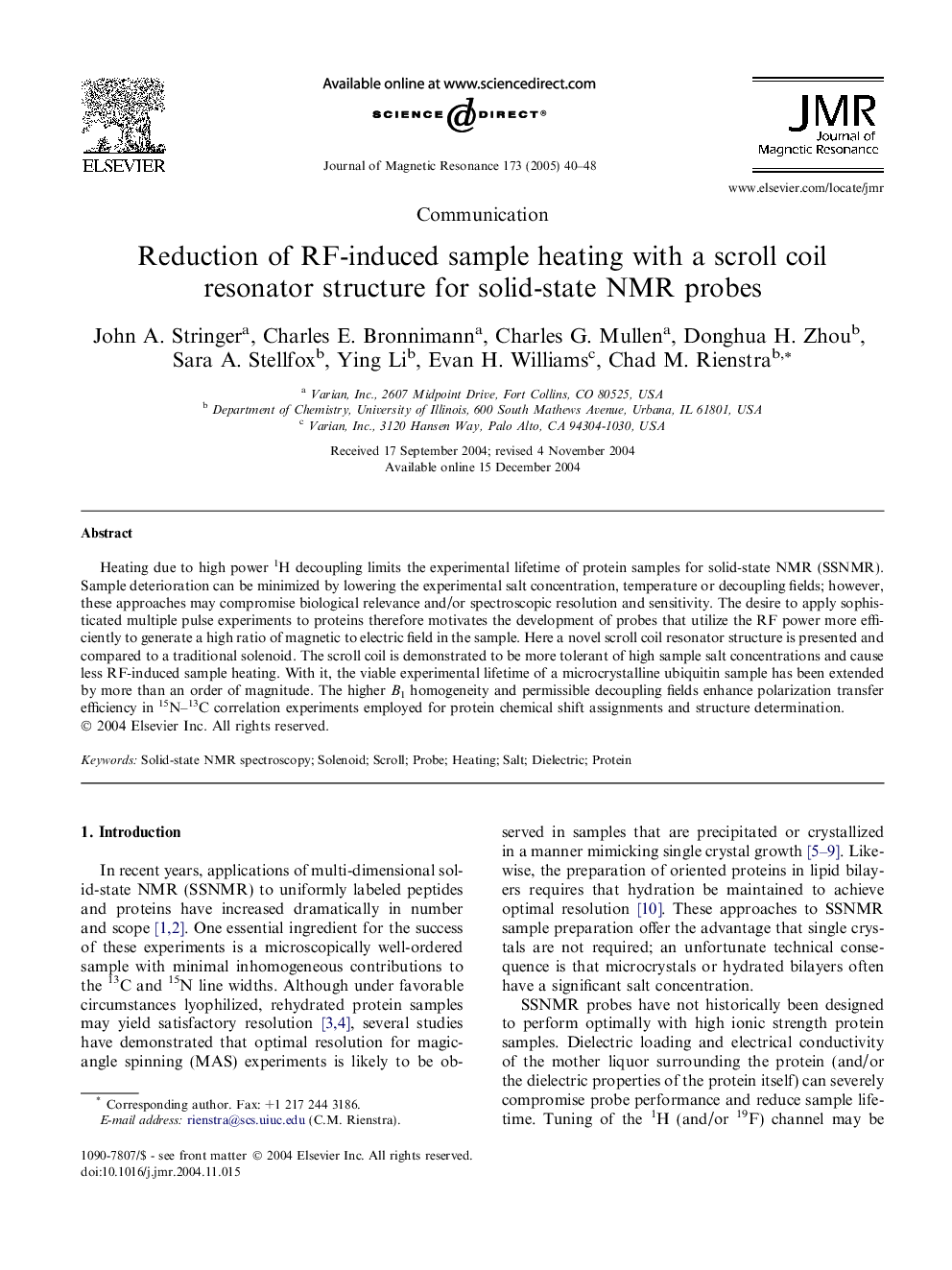| Article ID | Journal | Published Year | Pages | File Type |
|---|---|---|---|---|
| 9587576 | Journal of Magnetic Resonance | 2005 | 9 Pages |
Abstract
Heating due to high power 1H decoupling limits the experimental lifetime of protein samples for solid-state NMR (SSNMR). Sample deterioration can be minimized by lowering the experimental salt concentration, temperature or decoupling fields; however, these approaches may compromise biological relevance and/or spectroscopic resolution and sensitivity. The desire to apply sophisticated multiple pulse experiments to proteins therefore motivates the development of probes that utilize the RF power more efficiently to generate a high ratio of magnetic to electric field in the sample. Here a novel scroll coil resonator structure is presented and compared to a traditional solenoid. The scroll coil is demonstrated to be more tolerant of high sample salt concentrations and cause less RF-induced sample heating. With it, the viable experimental lifetime of a microcrystalline ubiquitin sample has been extended by more than an order of magnitude. The higher B1 homogeneity and permissible decoupling fields enhance polarization transfer efficiency in 15N-13C correlation experiments employed for protein chemical shift assignments and structure determination.
Related Topics
Physical Sciences and Engineering
Chemistry
Physical and Theoretical Chemistry
Authors
John A. Stringer, Charles E. Bronnimann, Charles G. Mullen, Donghua H. Zhou, Sara A. Stellfox, Ying Li, Evan H. Williams, Chad M. Rienstra,
